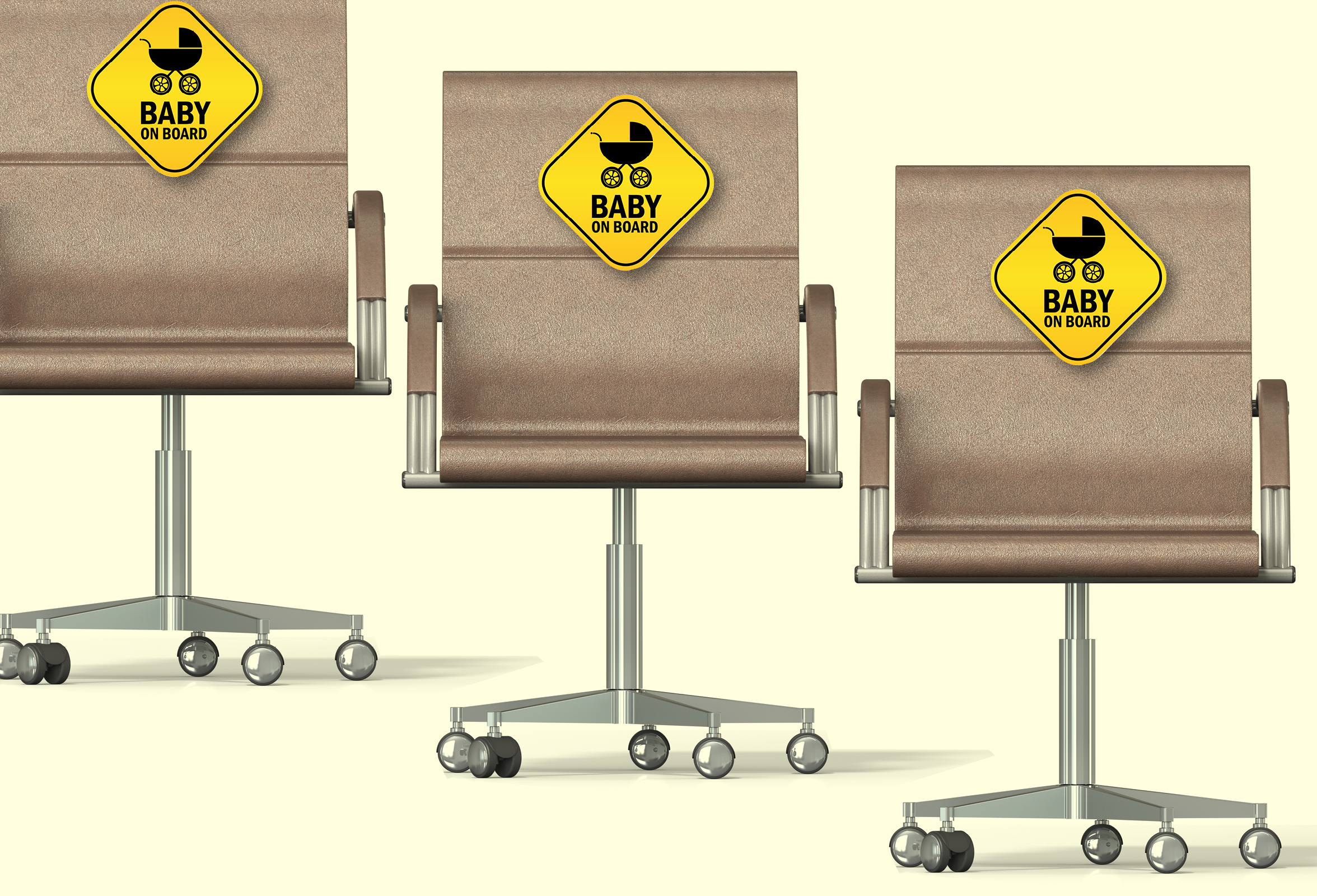Yes, we’re serious. It’s the easiest way to put your team at ease.
By Robyn L. Garrett
When I was pregnant with my first child, my aunt came to stay with me. I was so excited to see her, especially because I hadn’t told her the big news yet. I wanted her to be surprised, but I think she was legitimately shocked. I was already feeling emotional, and the news set her on edge too.
In sitcoms, the “crazy pregnant lady” trope—while definitively sexist—is always treated like a hilarious joke. On Friends, there’s Rachel snapping at Ross for a comment he made about her outfit. Everyone is laughing, and there’s no hard feelings. But in real life, the laugh track always seems to be turned off.
At one point, I came into my kitchen and found my aunt rearranging my cupboards. I was offended and incredulous—did she think my house wasn’t organized enough?
Sign up for the monthly TalentQ Newsletter, an essential roundup of news and insights that will help you make critical talent decisions.
In hindsight, I know she was just trying to help. But both of us felt pretty upset about the exchange, and that feeling didn’t go away in a 22-minute sitcom episode.
We had forgotten about the context, and the empathy just seemed to evaporate. It took a while to get past the complex feelings we experienced during that visit.
So, what does my pregnancy experience have to do with being a leader right now? Everything.
No One Is at Their Best Right Now (Or Everyone Is Pregnant)
Every day, I work with leaders who have forgotten about the context. They’ve forgotten we’re all feeling trapped and frustrated. They’ve forgotten the school year just started, and the parent stress is off the charts. They’ve forgotten you never really know what someone else is facing in their unique life.
This is a symptom of reduced “surge capacity,” the ability to cope with disaster and bounce back.
Maybe it would help if we imagined everyone was pregnant. After all, don’t we all deserve extra care and love right now? Wouldn’t we benefit from a laugh track to break the tension from time to time?
The human brain is a discounting system. There’s an excellent passage from Maria Semple’s novel Where’d You Go, Bernadette that explains this feeling:
“Let’s say you get a present and open it and it’s a fabulous diamond necklace. Initially, you’re delirious with happiness, jumping up and down, you’re so excited. The next day, the necklace still makes you happy, but less so. After a year, you see the necklace and you think, Oh, that old thing. It’s the same for negative emotions. Let’s say you get a crack in your windshield and you’re really upset. Oh no, my windshield, it’s ruined, I can hardly see out of it, this is a tragedy! But you don’t have enough money to fix it, so you drive with it. In a month, someone asks you what happened to your windshield, and you say, What do you mean? Because your brain has discounted it.”
Everyone agrees that 2020 has been a massively overwhelming year. We’re literally facing mortal danger everywhere we go. Our brains have had to cope with that danger, and there’s certainly some discounting going on.
In March, I had become a person who washed my bananas with dish soap. I gave it up eventually. Is it because bananas have become safer? Or is it because my brain is downplaying the danger so I don’t have a complete nervous breakdown one night?
My colleague Ren Wiebe wrote an excellent article recently about the dangers of our assumptions. This same logic applies to blind spots. Let’s say you write a long, detailed, heartfelt message to a colleague about something that’s important to you. Several hours pass and you don’t hear anything. Just as you’re getting ready for bed, you get an alert on your phone with their response: “Cool. Thanks.” A perfectly normal response is to feel hurt, maybe even angry. What a jerk!

After all, who can blame you for not exercising extra empathy and patience when you’re also facing tremendous stressors? I certainly don’t. But the truth remains: All that frustrustration and the discounting of context is only making things harder.
On Edge or On Eggshells?
If we start by accepting we’re all on edge right now, then maybe we can figure out the right reminders to help us default to empathy and not anger. I recently met with a CHRO who said, “We’ve suppressed our humanity for so long. We’ve forgotten how to be vulnerable and how to create a safe space for others to be vulnerable too.”
One practical way that leaders can help facilitate safe vulnerability is to create a structured space for it. Some people are comfortable with sharing their challenges, while others are extremely resistant.
So start small. Instead of an icebreaker where everyone shares their weekend plans, why not try an activity where everyone shares the thing they’re struggling with most right now? This could help your team members see one another as more human and flesh out some context that’s easily hidden in an all-virtual world.
Whatever you do, try to return to this idea as often as possible. Write “Everyone Is Pregnant” on a Post-it note and put it on your desk. Build habits that help everyone share a fuller range of emotions. And remember: We all need to walk on eggshells.
Robyn L. Garrett is chief customer officer at AIIR Consulting, a leadership development firm that leverages data science, advanced business psychology, and innovative technology to deliver proven results. You can find her on LinkedIn or Instagram at @youcantfightthefuture.


